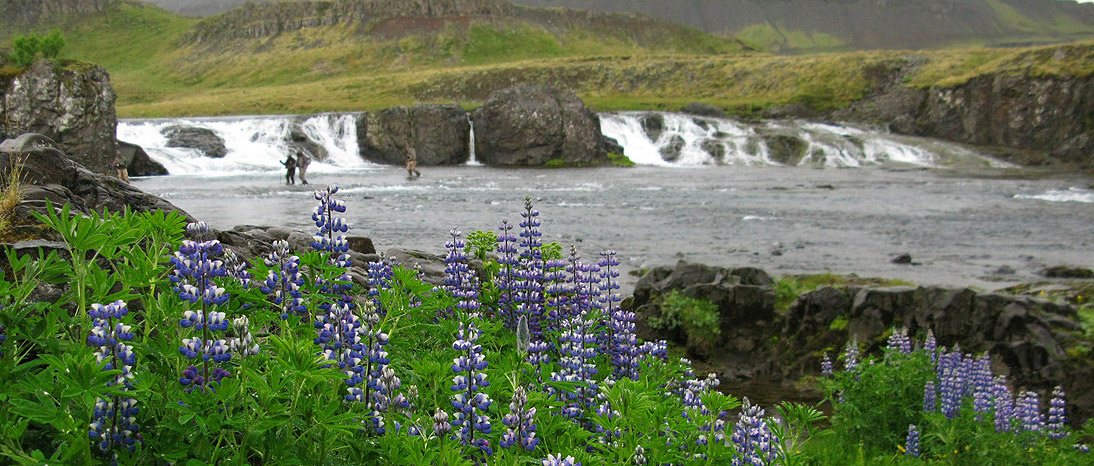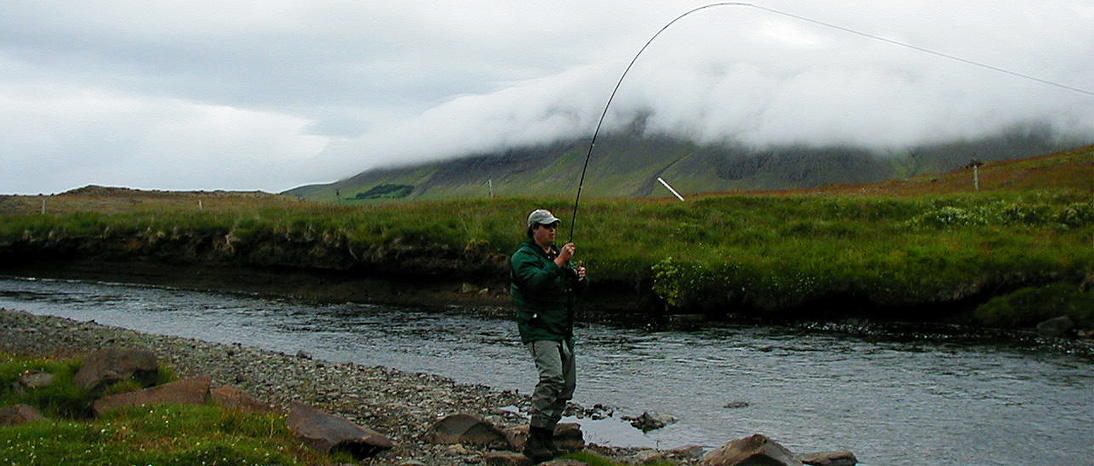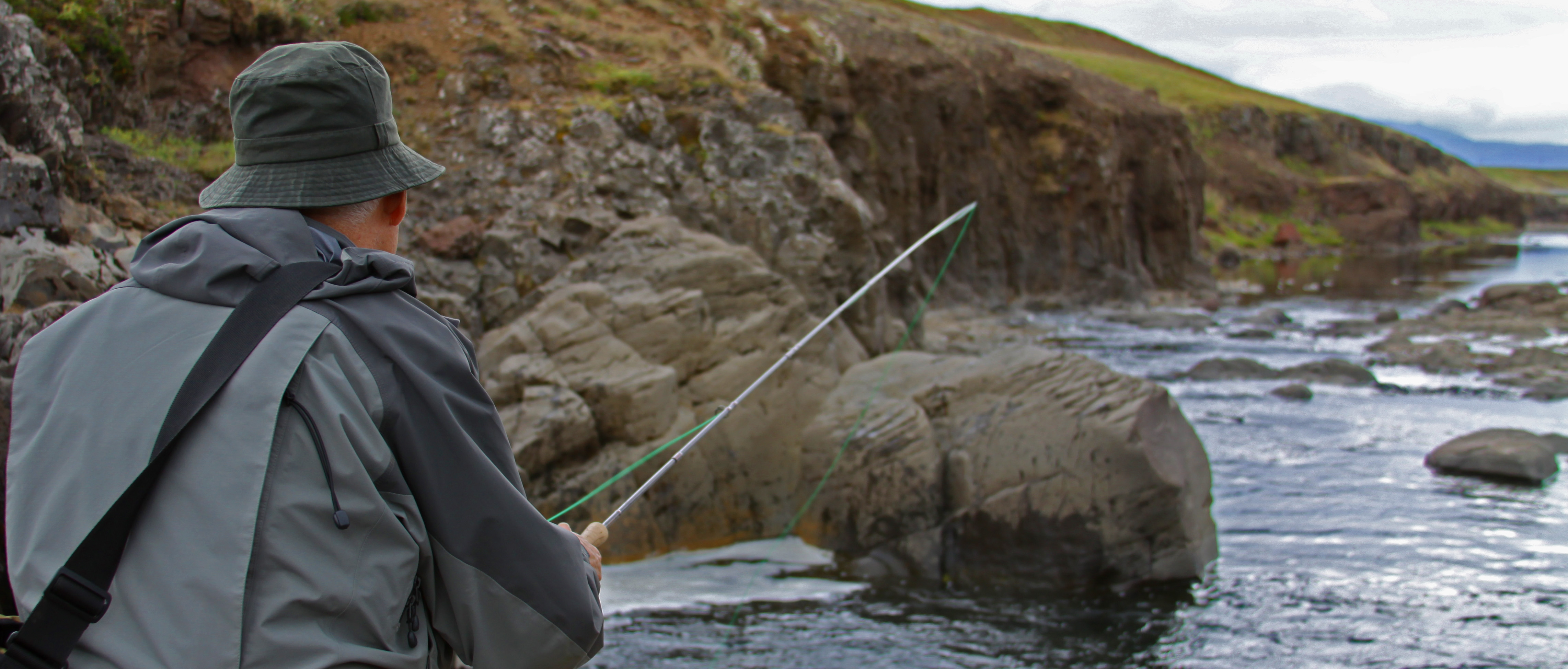Jökla River, Iceland
Located 40 kilometers to the north west of the town of Egilsstaðir on the east coast of Iceland, the Jökla River is born out of the eastern side of the Vatnajokull Glaciar and flows 100 kilometers to where it empties into the North Atlantic Ocean. Prior to the construction of a hidro-electric dam on the river in 2006, the Jökla was one of the dirtiest rivers in Iceland because of the glacial silt it carried. With the dam, the reservoir served to filter out the sediment creating ideal conditions below the dam to create and excellent salmon river. Subsequently using salmon from some of the Jökla’s clear water tributaries, a salmon spawning and smolt release program was established. In just a few years the Jökla fishery reached the amazing mark of 800 salmon caught in a single season. As the years passed larger and larger salmon are being caught in the Jokla. Now the river has turned into one of Iceland’s finest destinations for msw salmon, with multiple fish of over 100 cm caught each season.
Initially the fishing program was focused on the lower section of the Jökla along with its three most important tributaries: the Fossa, the Laxa and the Kalda, all included in the rotation. Another smaller independent river, the Fögruhlíðará which runs parallel to the Jökla in the lower part of the valley was also added to the rotation. All of the tributaries have naturally occurring populations of salmon and arctic char as well as sea-run and resident brown trout in the case of the Fögruhlíðará.
The fishing on the tributaries is varied and offers an interesting contrast to the Jökla itself. The system includes a total of 50 km of fly water fished by 6 to 8 rods. The Fossa is a short river with a very productive long initial pool which is the first one up from the Jökla. The Laxa provides a more intimate fishing scenario in the short section between the Jökla and water falls which are insurpassable to the salmon. The Kalda is the largest and longest of the tributaries offering the biggest pools. Fögruhlíðará is a slow meandering river which flows through an area of meadows.
Not so long ago, all of the river management efforts where concentrated on the section of the Jökla below a narrow where the river disappeared into a fissure in the volcanic rock which obstructed the passage of salmon farther upriver. Here a salmon ladder was built to allow the fish access to the upper section of river below the dam. Since then the salmon have colonized new spawning areas in this upper section and the area has recently been opened to catch and release fishing. In 2016 a limited number of rods were allowed to fish the upper Jökla with excellent results. Since then fishing was expanded to fish the upper part of the river from the middle of July until 30 September. We are delighted to say that the results have been impressive and the Jokla has become one of the best values in salmon fishing programs in Iceland.
We recommend 13 to 15 foot double hand rods for fishing in the Jokla itself and 6 to 8 weight one hand or switch rods with floating lines to fish the tributaries.
Popular flies include: Snaeldas, Blue Charms, Black & Blues, Green Brahans, Collie Dogs, Black o Red Franceses on size 4 to 16 hooks depending on the time of the season and water levels as well as a variety of hitch flies.
Guests fishing the lower Jökla and its tributaries stay at a comfortable full service lodge. Guests are accommodated in 8 double rooms with on suite bathrooms. The main building includes the kitchen, and a dining room -lounge area with a wood burning stove and satellite television. Lodge amenities also include a sauna and a drying room. Guests fishing the upper Jökla will stay at a self-service cabin near the fishing.
The Jökla is located on the east coast of Iceland. To get there guests fly into Egilsstaðir on a short domestic flight from Reykjavik. There they are received by lodge staff and transferred to the lodge by road.
Location: North of Egilsstaðir on the east coast of Iceland
Season: 29 June to 30 de September
Best dates: Mid-July to late August
Nº of rods allowed: 8
Fishing technique allowed: Fly
Species available: Atlantic salmon, sea-run and resident brown trout and char
Note: Fishermen should be aware the Icelandic authorities require that any fishing equipment brought into the country be sterilized appropriately with a proper veterinary’s certification. Sterilization of equipment may also be done at the airport.
In order to travel to Iceland, you should have a valid passport valid with an expiration date at least 6 months after the planned return date. A visa is not required for EU or US citizens.
You may also like
Nordura River, Iceland
Laxa í Kjos, Iceland
Laxá í Dölum, Iceland
Pescatravel, tu agencia de viajes de pesca de confianza.


